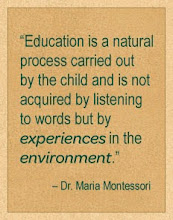Need based education a must for gifted learners

Finding the best instructional method for all students is a challenge. What works well for one may not for another. Parents and teachers must stay alert so that children regularly learn something new and do not just put in seat time. Yet in most classrooms, all students, despite having different ability levels, still do the same work. Psychologist and giftedness expert Linda Silverman is not surprised that many bright kids rebel and drop out of school. She says that the majority of them are still being under-educated and forbidden to learn at their own rate.
School districts that receive state monies for gifted education are expected to "appropriately" educate gifted students. According to Colorado’s accreditation rules, they, like all other exceptional students with special needs, require adjusted instruction that matches their abilities.
Differentiation in the early grades, but especially when signs of problems first arise, can mean the difference between a high school graduate and dropout. Many gifted students get straight A’s without studying or trying at all. When they do not learn at the pace and level they are capable of, and can never stretch beyond text book material, they may begin to underachieve.
To any parent it is thrilling to see report cards with nothing but A’s, but that can easily set the child up for failure, or fear of it, when school suddenly does demand more . Gifted children are often very sensitive, and sooner or later getting less than perfect grades can be devastating. The experience can be so traumatic that resulting stress may cause more grades to fall. Having to make up the lost credits in summer school may further strengthen a student’s belief that he or she is a failure.
When performance drops, intervention should take place immediately. It is important to ask the student what can be done to make things better. Both parents and teachers need to keep a positive attitude and not consider underachievement permanent, hopeless, or even a condition at all. It is more a symptom of things gone wrong.
The best is to challenge and engage students, to make learning relevant, and to allow them to do independent projects in their areas of interest. Gifted students can easily turn off to school when the curriculum is tedious, rigid, and unfairly punitive. Still, though many gifted students do well in challenging programs such as Advanced Placement or International Baccalaureate, some do not, likely because of the lack of differentiation. Without adaptations for their different needs many highly able students remain at risk for leaving school before graduation. Respect, empathy, and flexibility will go a long way to help keep them in!


0 Comments:
Post a Comment
<< Home